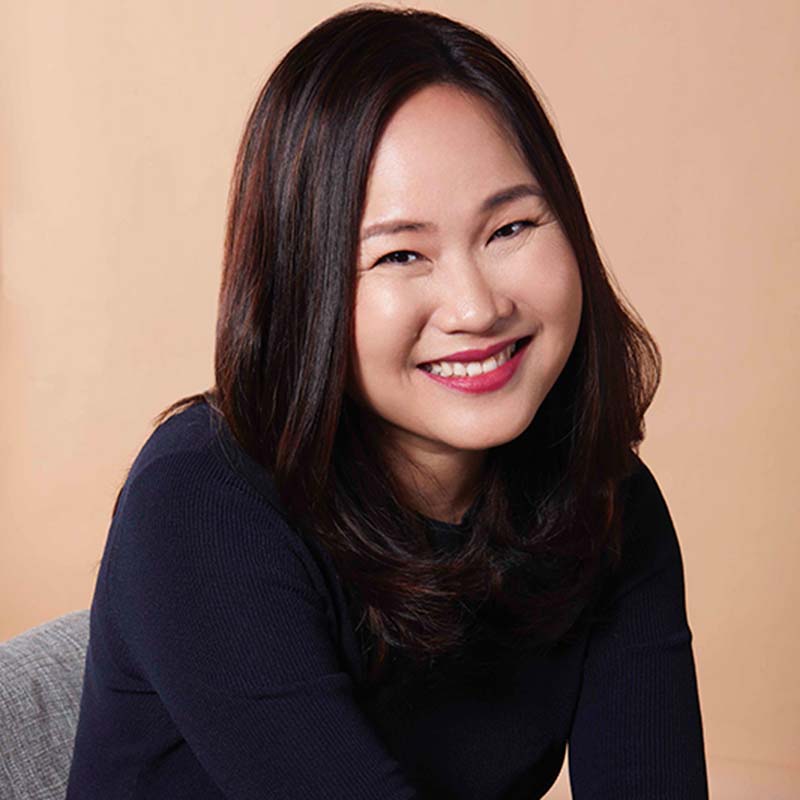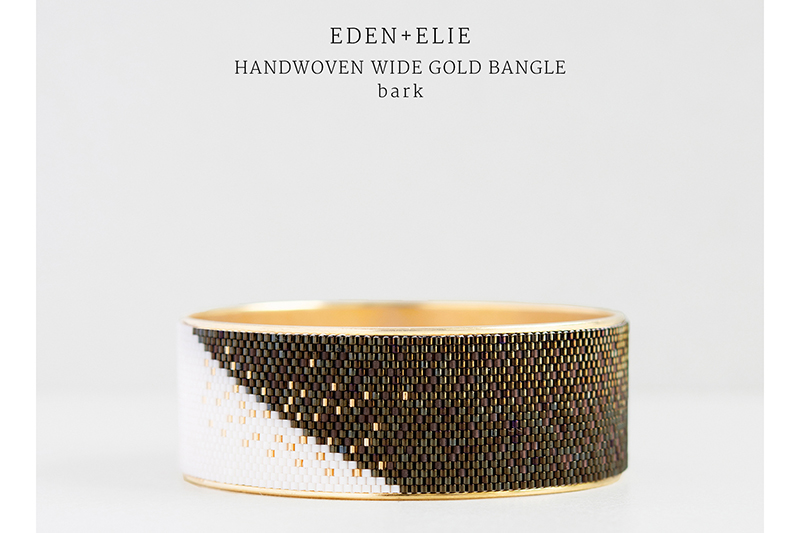ProductPayPal
Jim Magats, SVP, Payments and SMB Solutions
For many of us, our identity is tightly connected to our careers and our professional and personal lives are interconnected. So, being able to integrate meaning and purpose into the work you do can really make a difference and drive feelings of fulfillment. Over the years, I’ve spoken with small businesses across the world and heard many inspiring stories of entrepreneurs leaving their careers to pursue their passion and open up their own business. The founders of Singapore-based jewelry brand Eden + Elie share a similar story of leaving their traditional careers to pursue their passion.
Before her children, Eden and Eliot came along, Eden + Elie co-founder Stephanie Choo lived a career-oriented life as an architect and design professional. Through her extensive travels, she saw many environmental and social issues that various communities around the world were dealing with. In 2015, Stephanie decided to start her own business and commit full-time to creating beautiful jewelry with a modern contemporary aesthetic, while also creating opportunities for an underserved population.
I recently caught up with Stephanie to hear more about her business, the inspiration behind her creations, and her advice for other entrepreneurs.
Jim Magats: Can you share a background on your business and how you got started?

Stephanie Choo: Eden + Elie began out of a confluence of my love for design and for making a difference in the world. I come from the world of architecture and design, and my co-founder, Leon Toh, comes from the world of impact finance. Through our individual travels and work experiences, we’ve both seen the need for solving the inequalities faced by many communities around the world. These experiences led us to work towards building an impact-driven, design-led brand.
I think the growing awareness around conscious consumption is very much needed, and the choices we exercise in what we buy is an extension of that personal responsibility to be part of the solution to our shared environmental and social problems. However, the current popular ethos of “buy nothing” isn’t a sustainable way forward because the exchange of goods and services is a necessary part of sustaining livelihoods. At Eden + Elie, we want to make consumption feel good again – and that is by creating products that are beautiful, purpose-filled and responsibly made.
JM: You have an interesting career path. Can you share a bit about that and how you decided to make the leap to start and grow your own business?
SC: I was born and raised in Singapore but moved to the U.S. for college, graduate school and then subsequently started a career there as an architect and design professional. Although I was trained as an architect, I became interested in the intersection of design, business and social good through my travels. I came to realize that the marketplace could provide opportunities for communities with poor access to education or capital – because almost everyone knows how to make a transaction in the marketplace. I started to direct my career towards learning about business, working for fashion, ecommerce and product design companies. When I returned to Singapore, I entered the field of experience design, working with companies who wanted to innovate to build better products, services and customer experiences. I left that about six years ago to start Eden + Elie – which is a culmination of all I’ve learned in my career and more.
JM: Eden + Elie incorporates both design and social good. Can you share a bit about the social good piece?
SC: We deeply believe that sustainable modern living encompasses more than just caring about what things are made of, but how things are made and a pace of living that benefits people and the planet. We currently partner with a local organization to train and employ adults with autism spectrum disorder as bead-weaving artisans to produce our handcrafted jewelry. We are looking to support other communities in our mission to be an impact-driven design house.

JM: How do you approach designing jewelry? What things do you take into consideration?
SC: I approach jewelry design from a view that modern life is complicated, and we face tremendous pressure to be excellent in everything we do, whether it is raising our children, leaning into our work, or just making it all look effortless. I firmly believe that good design should support modern living, so that we have energy and time to focus on what is most important and essential to us. If our jewelry is that well-loved, go-to piece that helps someone get ready in the morning, is purposefully designed, meaningfully made and brings delight to the wearer, we’ve succeeded in making life a little bit simpler.
JM: I love that idea of making life a little simpler. At PayPal, we think of many of our products in a similar way – striving to make life easy and simple for our customers. Has PayPal helped simplify your payments experience or helped you more easily connect with your customers?
SC: We started using PayPal from the first day we launched Eden + Elie. As a new business, it was essential to earn the trust of our early customers and we wanted to use a payment partner that was reputable and well-established. We also had customers in the U.S. and our website’s default currency is USD, so PayPal was and continues to be a choice for many of our customers. So, from that perspective, yes, PayPal has helped simplify our payments experience and also helped drive trust with our customers, which was especially critical in the early days of our business.
JM: What’s the best thing about being a small business owner? Conversely, what’s the hardest thing about being a small business owner?
SC: One of the best things about being a small business owner is the autonomy I have to structure my day. I have a better opportunity to reach that state of flow in my work. Of course, one of the hardest things is prioritizing my time. It is easy to be consumed with fighting fires every day, losing sight of what is important and strategic, because there are so many demands for your time and energy.
JM: Do you have any advice for other entrepreneurs or people looking to start their own small business?
SC: People become entrepreneurs for many different reasons and those reasons are almost always deeply personal. My advice is to look after what feeds your soul. By that I mean, know what it is that feeds your soul, and protect that source. It can be a long, difficult road with a lot of sacrifices, and your internal compass needs to guide you well.